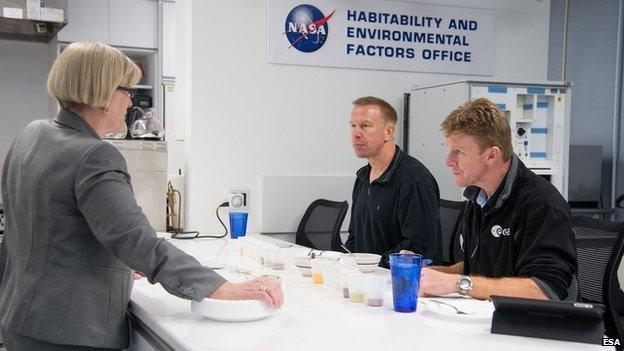Tim Peake asks for help with space plant experiment
- Published
Tim Peake explains how schoolchildren can grow rocket seeds that have flown in space.
British astronaut Tim Peake has asked schoolchildren to help him with one of his scientific experiments.
He wants pupils to plant rocket seeds that have been in orbit with him, and compare their growth with rocket plants that have stayed on Earth.
Mr Peake has outlined details of the project, external in a message from the space station which will be sent to schools.
The study will help find ways to grow food in space which will be essential if humans travel to distant planets.
In his message, the European Space Agency (Esa) astronaut explains that he will be sending more than a million seeds back to Earth in a month's time.
"Conditions here on the International Space Station are quite different from on planet Earth, due to us being weightless here in orbit."
In his hands are a bag of seeds which occasionally float away. Unperturbed, he gently pulls them back towards him and continues.
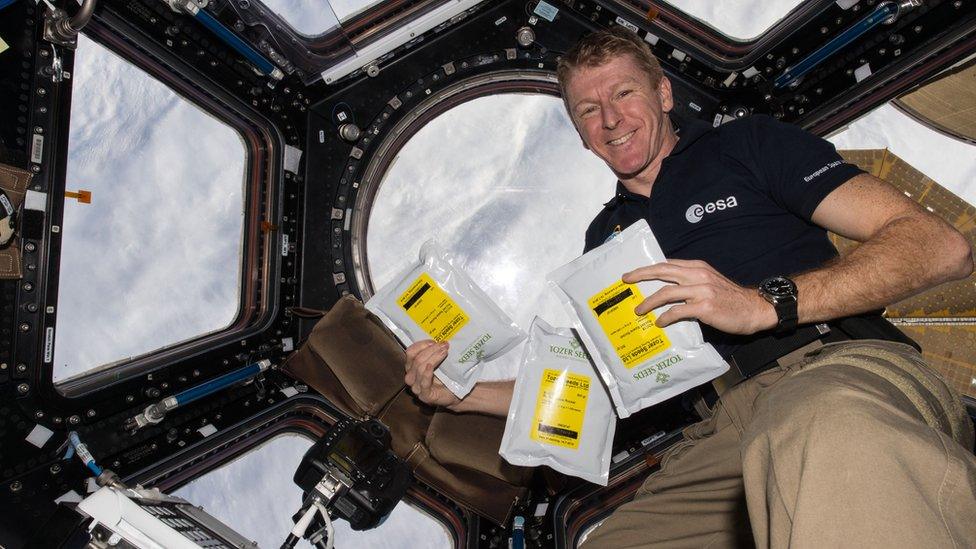
The project is being run by the Royal Horticultural Society and the UK Space Agency
"This experiment will aim to see if microgravity can affect the growth mechanisms in seeds," he adds.
The seeds will be distributed to up to 10,000 schools. Pupils will compare the growth of the space seeds with others that have remained on Earth.
This comparison has never before been made on this scale, according to Dr Alistair Griffiths, the scientific director of the Royal Horticultural Society (RHS)
"This will be genuinely useful science," he told BBC News. "There will be impacts from zero gravity and from cosmic radiation and no one really knows what those will be.
"So the results really will contribute to the science of how to grow plants in space".
The massed experiment, called Rocket Science, could help researchers to develop hardier varieties of crops to be grown in space.
Dr Alistair Griffiths explains why growing plants in space is hard
Each astronaut on the ISS requires 5kg of food and water each day, according to Esa. They receive regular supplies from Earth.
But it would be too expensive to do this for a permanent human colony on the Moon and would not be at all realistic for a return trip to Mars, according to Jeremy Curtis of the UK Space Agency.
He said that the proposed seed experiment would be an important contribution to solving one of the main stumbling blocks to living and working in space for prolonged periods.
"There are already a few experiments that have been carried out in the International Space Station to grow food. In order to be sure we can send people on long duration missions, for example to Mars, it's important to be able to grow a range of nutritious foods for the astronauts to supplement their supplies of dried and tinned food.
"With the Rocket Science project, young people across the UK can help us prepare for the next stage of human exploration."
Science Minister Jo Johnson told BBC News that he hoped that the experiment would get more children interested in science.
"Tim's mission is not just an inspiration to young people, it is about important scientific research that can only be carried out in space.
"I'm delighted that this study to help find ways to grow food in extreme conditions is getting thousands of young people involved in studying plants and science."
Follow Pallab on Twitter, external
The RHS Campaign for School Gardening will be accepting applications for Rocket Science until March 2016 when the seeds return to Earth. Find out more and sign up here, external.
- Published16 January 2016
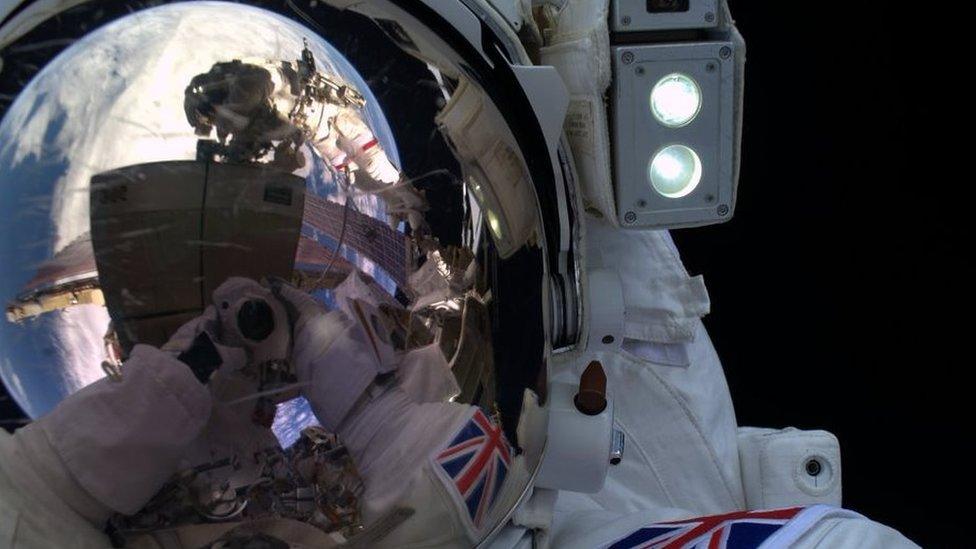
- Published8 January 2016
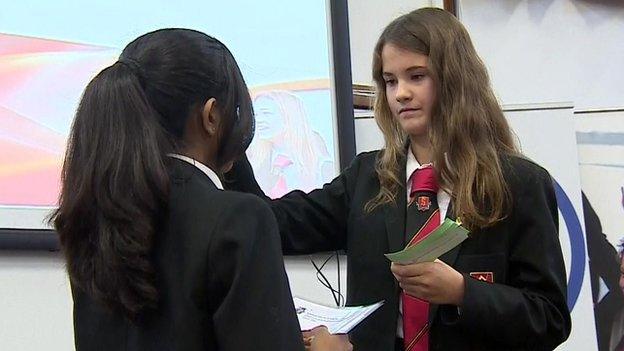
- Published19 May 2015
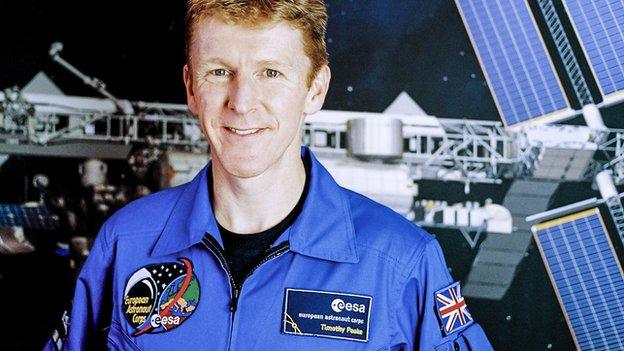
- Published2 May 2014
